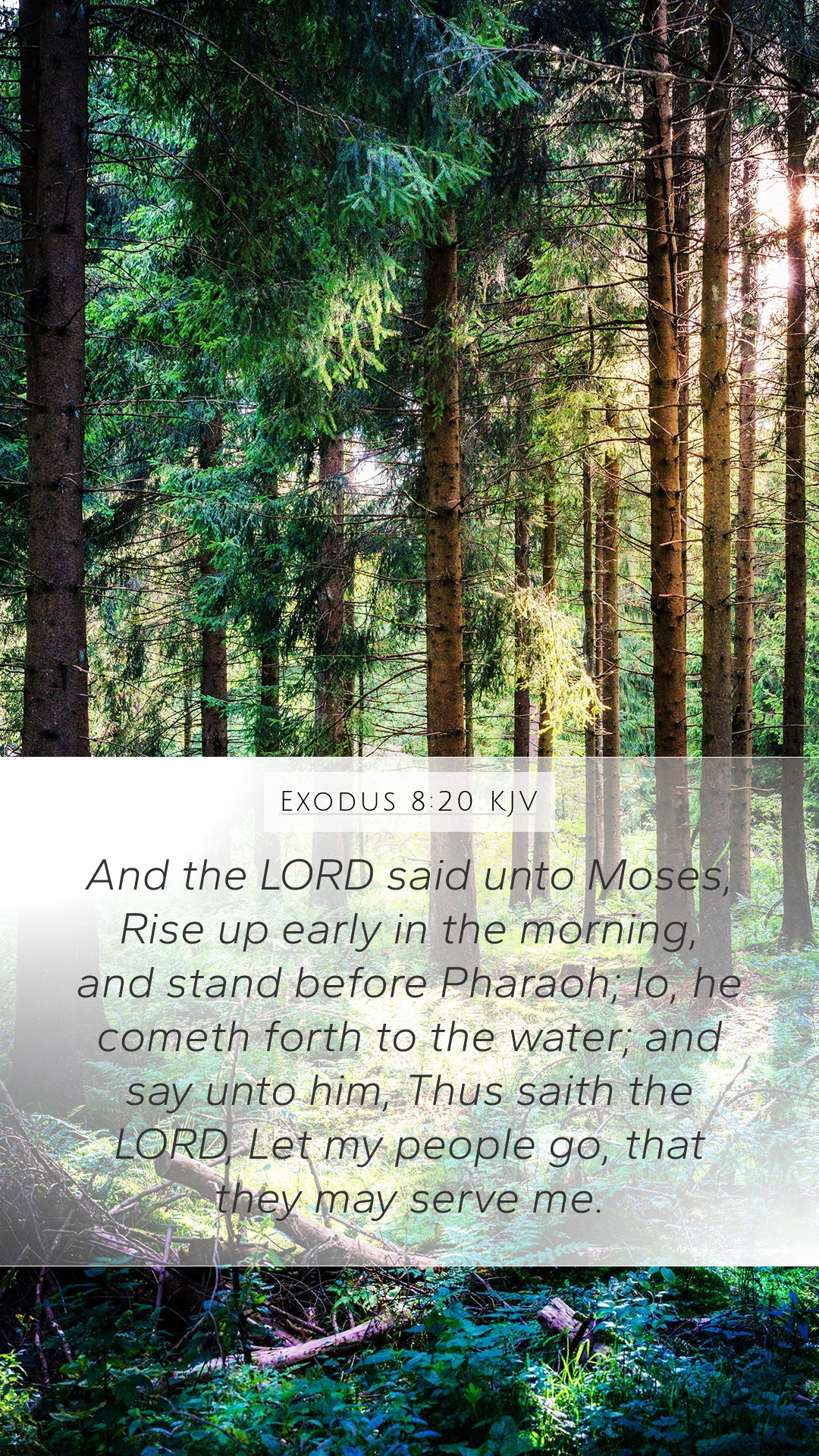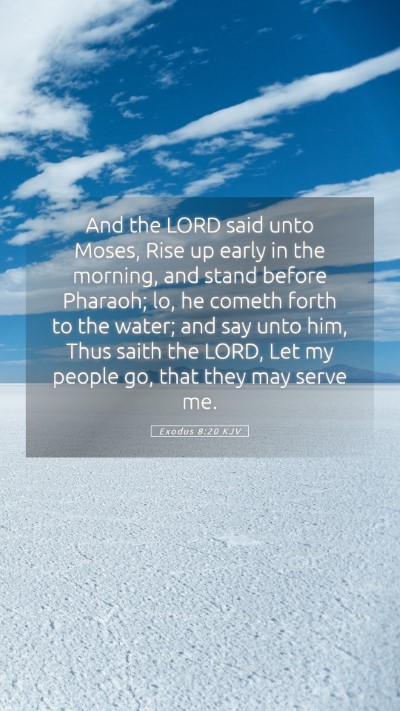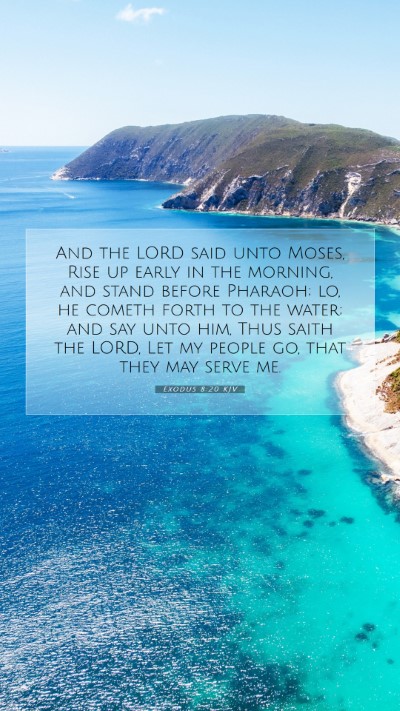Understanding Exodus 8:20
Exodus 8:20 is a pivotal verse within the narrative of the plagues that befell Egypt. This verse, part of the larger context of Moses confronting Pharaoh, invites rich exploration through various lenses. Below is a comprehensive summary of insights derived from esteemed public domain commentaries from Matthew Henry, Albert Barnes, and Adam Clarke, aiming to enhance your understanding and interpretation of this significant scripture.
Verse Context
Before diving into the detailed commentary, it's essential to note that Exodus 8:20 falls within the second plague, the plague of flies, which emphasizes God's power over creation and His authority to bring judgment upon Egypt due to Pharaoh's refusal to release the Israelites.
Verse Text
“And the Lord said unto Moses, Rise up early in the morning, and stand before Pharaoh; lo, he cometh forth to the water; and say unto him, Thus saith the Lord, Let my people go, that they may serve me.” (Exodus 8:20)
Commentary Insights
-
Matthew Henry
Matthew Henry emphasizes the divine command given to Moses as a call to action and reiterates God's sovereignty. He highlights that God anticipates Pharaoh's obstinateness and prepares Moses to confront him at a moment when he would be vulnerable, likely at his morning routine by the water.
Henry also notes the symbolic nature of this confrontation; it underlines the consistent theme of God's power over Egyptian gods, utilizing natural elements to demonstrate His supremacy.
-
Albert Barnes
Albert Barnes provides an analysis of the significance of this verse in its immediate context. He notes the strategic timing of Moses’ approach to Pharaoh, emphasizing that confronting the king while he approaches the Nile, a place of Egyptian worship and dependency, serves to heighten the impact of the divine message.
Barnes further elucidates that this encounter is not just a physical confrontation but a spiritual and ideological challenge to Pharaoh's authority and the idols of Egypt.
-
Adam Clarke
Adam Clarke elaborates on the prophetic elements of this verse. He interprets the command to rise early as a symbol of urgency in God's mission, indicating that Pharaoh's refusal to obey will have escalating consequences for Egypt.
Clarke highlights that Moses' directive to Pharaoh to 'let my people go' encapsulates the heart of God's covenant promise to Israel, framing the message not merely as a demand but as a plea rooted in divine love and purpose.
Application and Insights
Exodus 8:20 serves as a rich text for modern application and reflection. Here are some highlighted themes and lessons that can be derived from this verse:
- Divine Authority: The narrative illustrates the authority of God in the affairs of men, particularly against the backdrop of obstinate leadership. It encourages readers to submit to divine will rather than resist.
- Preparation for Action: The urgency and preparation in Moses’ actions remind believers of the importance of being ready to act in faith, especially when called to confront difficult situations or authorities.
- Spiritual Warfare: The battle between God and the gods of Egypt represents a broader spiritual conflict, encouraging believers to recognize the realities of spiritual warfare in their lives.
- God's Patience with Humanity: Despite Pharaoh's repeated refusal, God's continued outreach through Moses reflects His desire for repentance and salvation, which can inspire compassionate outreach in our own lives.
Cross References
- Exodus 5:1-2: The initial confrontation between Moses and Pharaoh regarding Israel's release.
- Exodus 7:14-17: The first plague, which sets the stage for the following encounters.
- Exodus 10:3: A subsequent demand made to Pharaoh, reinforcing the message of liberation.
Conclusion
Exodus 8:20 encapsulates a moment of divine authority, human resistance, and the ongoing relationship between God and His people. Through the insights drawn from esteemed commentaries, believers can gain enriched understandings of scripture that transcend mere historical narrative, prompting meaningful applications in today's world.
Whether you are engaging in Bible study groups, seeking online Bible study resources, or utilizing various Bible study tools, the themes and truths found in Exodus 8:20 resonate with the need for spiritual readiness, understanding of God's sovereignty, and the persistent call for liberation and obedience in faith.


